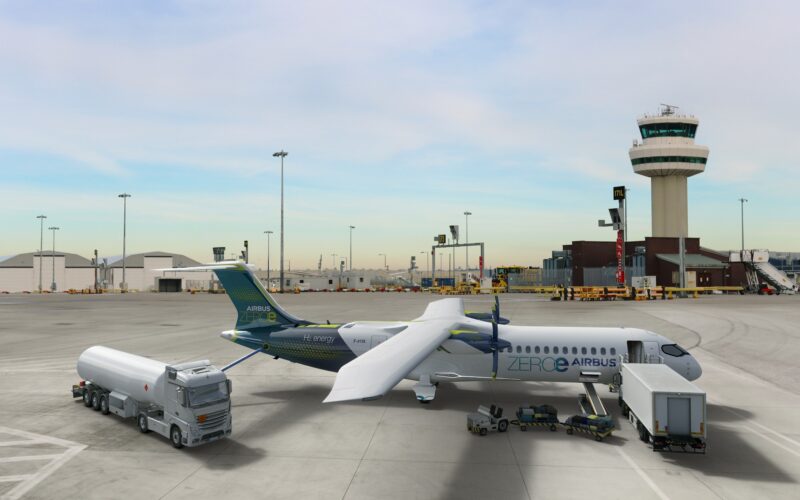Airbus, easyJet and London-Gatwick (LGW) are working on a new collaboration to bring a new hydrogen hub to the United Kingdom’s (UK) second busiest airport.
In a joint announcement, Airbus, Gatwick and Air Products, the world’s largest hydrogen supplier, revealed plans to build the infrastructure needed to supply hydrogen-powered aircraft.
Airbus’ Hydrogen Hubs at Airports framework covers liquid hydrogen supply and storage, refueling and ground handling of aircraft and exploring the possibility of using hydrogen at London-Gatwick on shorter projects.
Airbus has previously announced a series of partnerships with several airports under the hydrogen hub umbrella to pursue similar projects.
These now include airports in Canada, France, Germany, Italy, Japan, New Zealand, Norway, Singapore, Spain, South Korea, Sweden, and the United States.
Airbus selected Gatwick as current plans for hydrogen-powered aircraft development are very much focused on short- to medium-haul routes, which the airport excels in.
Airbus said in a statement on July 18, 2024, that it believes the collaboration with London-Gatwick, easyJet and Air Products “will serve as a powerful statement of commitment” for hydrogen powered flight by 2035.
Airbus is also developing its own hybrid-hydrogen turbofan and turboprop aircraft through its ZEROe project.
“Our licence to operate hinges on finding better ways to fly. We know hydrogen has the versatility to be an excellent fuel source for decarbonising the industry. We’ve set ambitious targets to fly on hydrogen by 2035 and this technology needs to be supported by reliable and tested infrastructure,” said Airbus Vice President of ZEROe Project, Glenn Llewellyn.
He added: “Sharing knowledge and best practice at airports will be critical for building the right hydrogen ecosystem around the world and we look forward to working with all consortium members to develop the support for the technology and end-to-end hydrogen supply chain that will power future flight.”
The CEO of Gatwick, Stewart Wingate, said that the project will work in parallel with the airport’s own plans to be net-zero by 2030.
“We still have a long way to go and a lot of hard work to do, but today’s exciting partnership is an important early step toward reaching our net zero ambitions,” Wingate said.

